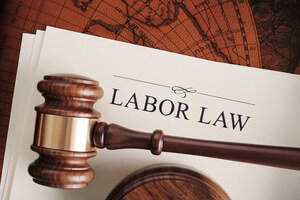 A wider understanding of the lawsuit requires an understanding of how it relates to Proposition 22, a ballot initiative that was approved by California voters in November. Proposition 22 sought to define app-based transportation (rideshare) and delivery drivers as independent contractors and adopt labor and wage policies specific to app-based drivers and companies. Even more fundamentally, though, the lawsuit raises compelling questions about whether California labor laws are sufficient to protect workers who choose to work a flexible schedule.
A wider understanding of the lawsuit requires an understanding of how it relates to Proposition 22, a ballot initiative that was approved by California voters in November. Proposition 22 sought to define app-based transportation (rideshare) and delivery drivers as independent contractors and adopt labor and wage policies specific to app-based drivers and companies. Even more fundamentally, though, the lawsuit raises compelling questions about whether California labor laws are sufficient to protect workers who choose to work a flexible schedule.Constitutional challenges
Olson argues that California’s worker-classification framework enacted through AB 5, AB 170 and AB 2257 violates the Equal Protection and Due Process Clauses of the Fourteenth Amendment to the United States Constitution, the Contracts and State Bill of Attainder Clauses of Article I of the United States Constitution, and the Equal Protection, Due Process, Contracts, and Bill of Attainder Clauses of the California Constitution. The argument is essentially that these laws violate the federal and California Constitutions because they single out app-based businesses, like Uber, for unfair treatment without a rational relationship to the legitimate goal of worker protection.
Rational basis scrutiny
When someone believes that a state government has violated that individual's Equal Protection rights, equal rights, he or she must show actual discrimination against the individual and actual harm. It is not clear that the Complaint specifically describes any actual harm suffered by any of the plaintiffs. This might have been especially difficult for Uber, which has largely failed to comply with AB 5.
On the basis of this evidence a court would ordinarily evaluate an Equal Protection claim under one of three tests:
- The strict scrutiny test, which is usually applied to issues like race, religion or the denial of the right to vote;
- The intermediate scrutiny test, which is often applied to allegations of discrimination on the basis of gender or illegitimacy; or
- The rational basis test, which is the default for all other claims.
Proposition 22
The Complaint further argues that the California state officials, including Attorney General Xavier Becerra, have continued to act in open defiance of the voters’ wishes, as expressed in their approval of Proposition 22 in November 2020.
Proposition 22 considered a very specific subset of app-based workers to be independent contractors and not employees or agents. On a prospective basis, the ballot measure overrode AB 5 with respect to drivers who provide delivery services on an on-demand basis through a business’s online-enabled application or platform or use a personal vehicle to provide prearranged transportation services for compensation via a business’s online-enabled application or platform. Examples would include drivers for Uber, Lyft, DoorDash and PostMates. The ballot initiative does not apply to other workers.
Olson’s allegations and request for an injunction to prevent the enforcement of AB 5 appear to relate to the period prior to the effective date of the ballot initiative.
The hidden policy issue
READ MORE CALIFORNIA LABOR LAW LEGAL NEWS
The question that follows is whether worker protection laws, not just wage and hour regulation, but those that guarantee rest and meal breaks, for instance, are adequate to protect workers in non-traditional settings. Olson does not take that step, appearing to argue somewhat implausibly, that contract protections are adequate for the drivers, but a fundamental re-thinking of California worker protection law may be in the offing sooner rather than later.
